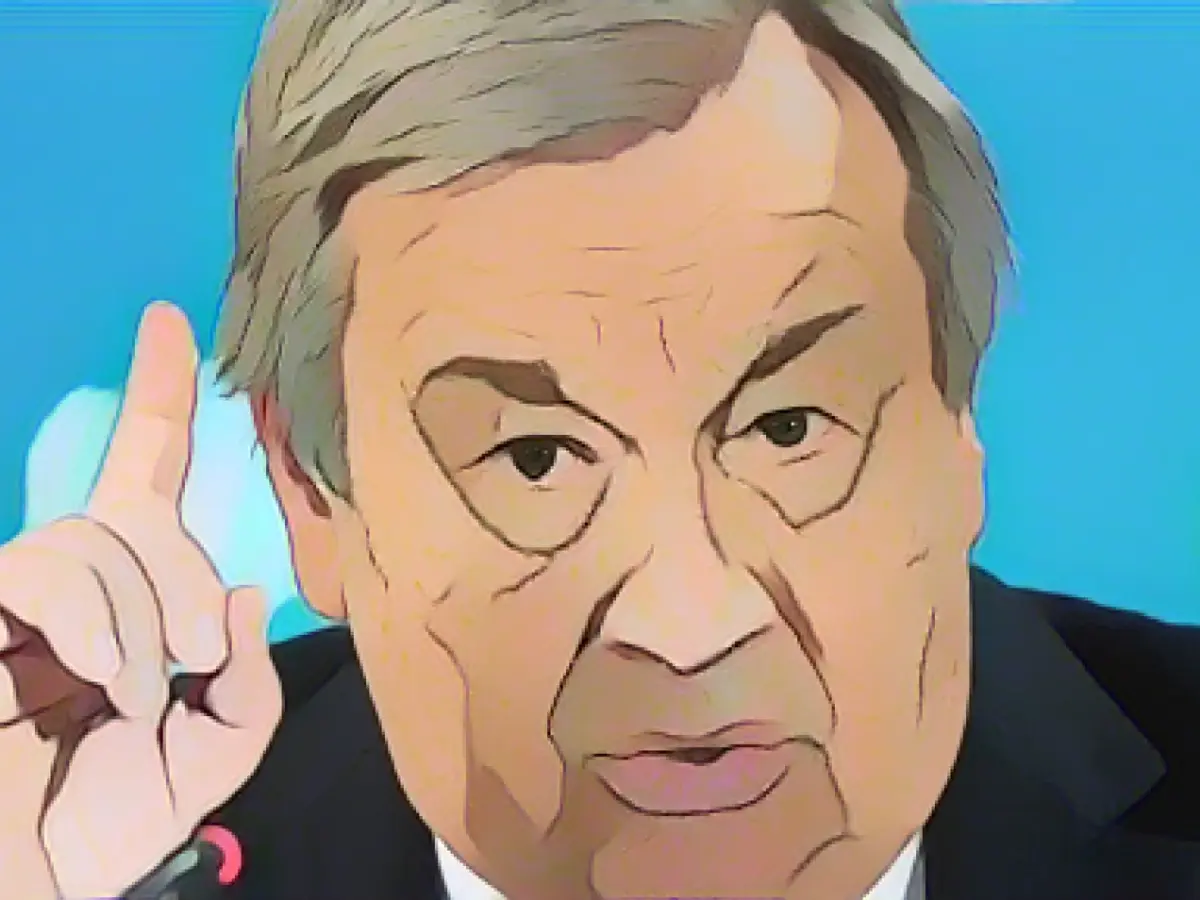Health - UN Secretary-General: World not prepared for new pandemic
According to UN Secretary-General António Guterres, the world is not yet prepared for a possible new pandemic. "We need to do more," he said on the International Day for Epidemic Preparedness (December 27). This is to be regulated with a global pandemic treaty, on the initiative of EU Council President Charles Michel.
Negotiations on this are underway at the World Health Organization (WHO) in Geneva and are now entering the hot phase. The 30-page draft is highly controversial. The treaty is to be adopted at the World Health Assembly (May 27 to June 1, 2024). The Konrad Adenauer Foundation, which is monitoring the negotiations in Geneva, believes it is highly unlikely that all problems can be resolved by then.
Referring to the lessons learned from the Covid-19 pandemic,Guterres said: "We must not allow the moral and medical catastrophe of rich countries hoarding and controlling pandemic supplies. We must ensure that everyone has access to diagnostics, treatment and vaccines."
Dispute over transparency and property rights
In light of the coronavirus pandemic, the UN Assembly designated December 27 as "Epidemic Preparedness Day" in 2020. Local or regional outbreaks of an infectious disease are epidemics, while a global spread is referred to as a pandemic.
Among other things, the pandemic treaty deals with how information about new pathogens is shared quickly, who produces vaccines and medicines and where, and how they are distributed. Even if the treaty is adopted at the WHO meeting: It would only come into force if enough countries ratify it and would only be valid in those countries.
Rich countries criticize, for example, that they should disclose details about the funding of pandemic product research and that pharmaceutical companies should make prices transparent. It is also controversial that the pharmaceutical industry should waive intellectual property rights to medicines in a new pandemic and be obliged to hand over part of its production to the WHO for distribution. Federal Health Minister Karl Lauterbach (SPD) has assured the WHO of his full support for the planned agreement.
Hundreds of constitutional complaints have been lodged with the Federal Constitutional Court against the treaty. In September, one was rejected as inadmissible. The complainant feared that the WHO could issue binding directives and override decisions by sovereign states on health measures in self-proclaimed pandemics and health emergencies. The highest German court ruled that the complainant's rights were not violated by Germany's future involvement in the treaty. In addition, there was not yet a consent law that could be challenged with the constitutional complaint.
Read also:
- Year of climate records: extreme is the new normal
- Precautionary arrests show Islamist terror threat
- UN vote urges Israel to ceasefire
- SPD rules out budget resolution before the end of the year
- The EU Council President Charles Michel is leading negotiations on a global pandemic treaty at the World Health Organization (WHO) in Geneva, aiming to prepare for a potential new pandemic.
- According to UN Secretary-General Antonio Guterres, the world is not adequately prepared for another disease outbreak or pandemic, emphasizing the need for transparency and equitable access to healthcare resources.
- The covid-19 pandemic has highlighted the importance of addressing diseases and health issues on an international level, prompting the UN Assembly to designate December 27 as "Epidemic Preparedness Day."
- The draft of the pandemic treaty under discussion at the WHO involves sharing information about new pathogens swiftly, as well as regulating vaccine and medicine production and distribution.
- Controversies surrounding the proposed treaty include transparency requirements for pandemic product research funding and the waiving of intellectual property rights by pharmaceutical companies in a new pandemic.
- Critics argue that rich countries should not be required to disclose funding details or make prices transparent, while pharmaceutical companies raised concerns about the potential impact on innovation and profitability.
- The proposed WHO agreement faces hundreds of constitutional complaints in Germany, with one recently being rejected due to lack of a consent law for a challenge.
- Federal Health Minister Karl Lauterbach (SPD) has pledged his full support for the planned agreement, while Switzerland, along with other countries, is also actively participating in the negotiations at the WHO in Geneva.
Source: www.stern.de








